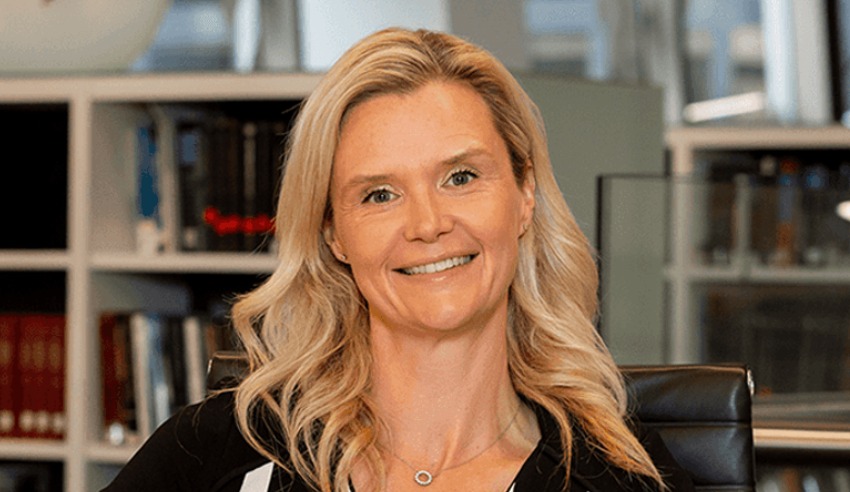Whilst working in litigation offers a wide range of variety to start with, this litigation partner says that working post-pandemic will offer a new scope of challenges.

Alexandra Tighe is a partner and co-chair of the inclusion and diversity committee at Holding Redlich. She’s also the winner of the BigLaw Partner of the Year at last year’s Women in Law Awards.
After being unhappy in a different firm as a junior lawyer, Ms Tighe reached out to Holding Redlich despite there being no roles advertised, and is still at the firm 15 years later.
“I’ve always been in litigation. I did one rotation in corporate when I was a junior lawyer, and that just really wasn’t for me,” she said.
“I just wasn’t happy in this environment and I couldn’t quite put my finger on why. I just really wasn’t enjoying the experience I was getting. I wasn’t really enjoying the interactions with the leaders that I was working for.
“So, I did a bit of research, landed on Holding Redlich as a firm that seemed to be doing really interesting work, but also had a really good cultural fit for what I was looking for.”
As the legal industry evolves and turns to technology more and more, lawyers are constantly needing to learn and improve upon their current skill set – which Ms Tighe said is part of the reason she likes most about litigation as a practice area.
“It gives me a lot of variety and every matter is different, every fact scenario is different, every client is different, every matter is interesting. I’m still learning, and I think that’s what I like the most about litigation. It’s always changing and evolving and you’ve got to move with it, which keeps it fresh and interesting,” she said.
“The industry has had to pivot and embrace technology and to use technology in our marketing in a very different way to say, 12, 18 months ago, where it was very face-to-face.
“But I think you can still build relationships, even though we’re not face to face, and I guess an interesting case in point would be the current commission that I’m working on, the Crown Casino royal commission in Melbourne. We’re still pretty limited in the way in which we operate, and the commission has very strict rules about how many people are allowed in the room.”
In terms of areas of the legal industry to keep an eye on, Ms Tighe said that class actions were “obviously an evolving space”.
“Funders are grappling with the issues being thrown at them about legislative reform in their area and access to justice for clients who wouldn’t be otherwise able to fund it and survive. I think it’s an important balance to strike that ability to be able to pursue those rights, and the biggest barrier to access to justice in the commercial litigation field is funding,” she said.
“So, I think it’s something that needs to be very carefully managed in terms of how the funders are able to operate in the market versus their returns that are obviously being scrutinised at the moment.”
Having worked on a number of royal commissions, Ms Tighe added that post-pandemic, it would be wise for Australia to look at other countries in how they handled COVID-19, and how a commission into the pandemic may be useful.
“I do think that it warrants a very close examination and looking at future recommendations and ways in which we can do things better and learn from countries around the world, what works, what doesn’t work, what do we need to be doing to best tackle this pandemic?” she said.
Furthermore, Ms Tighe added that post-pandemic was going to be a particularly busy time for litigators as businesses ascertain how they tackle challenges related to COVID-19.
“I think that the challenges that COVID sprung are unique in terms of: there’s a lot of businesses in distress and I think there’s going to be a lot more make or break mitigation, which just puts more pressure on,” she concluded.
“I think there’ll be a lot more hanging on the outcome because there is a lot more pressure on the commercial clients that we have. There have been some safe harbour provisions that are no longer with us, and I think everybody’s just waiting to see how those businesses in distress survive from here.”
The transcript of this podcast episode was slightly edited for publishing purposes. To listen to the full conversation with Alexandra Tighe, click below:

Lauren is the commercial content writer within Momentum Media’s professional services suite, including Lawyers Weekly, Accountants Daily and HR Leader, focusing primarily on commercial and client content, features and ebooks. Prior to joining Lawyers Weekly, she worked as a trade journalist for media and travel industry publications. Born in England, Lauren enjoys trying new bars and restaurants, attending music festivals and travelling.